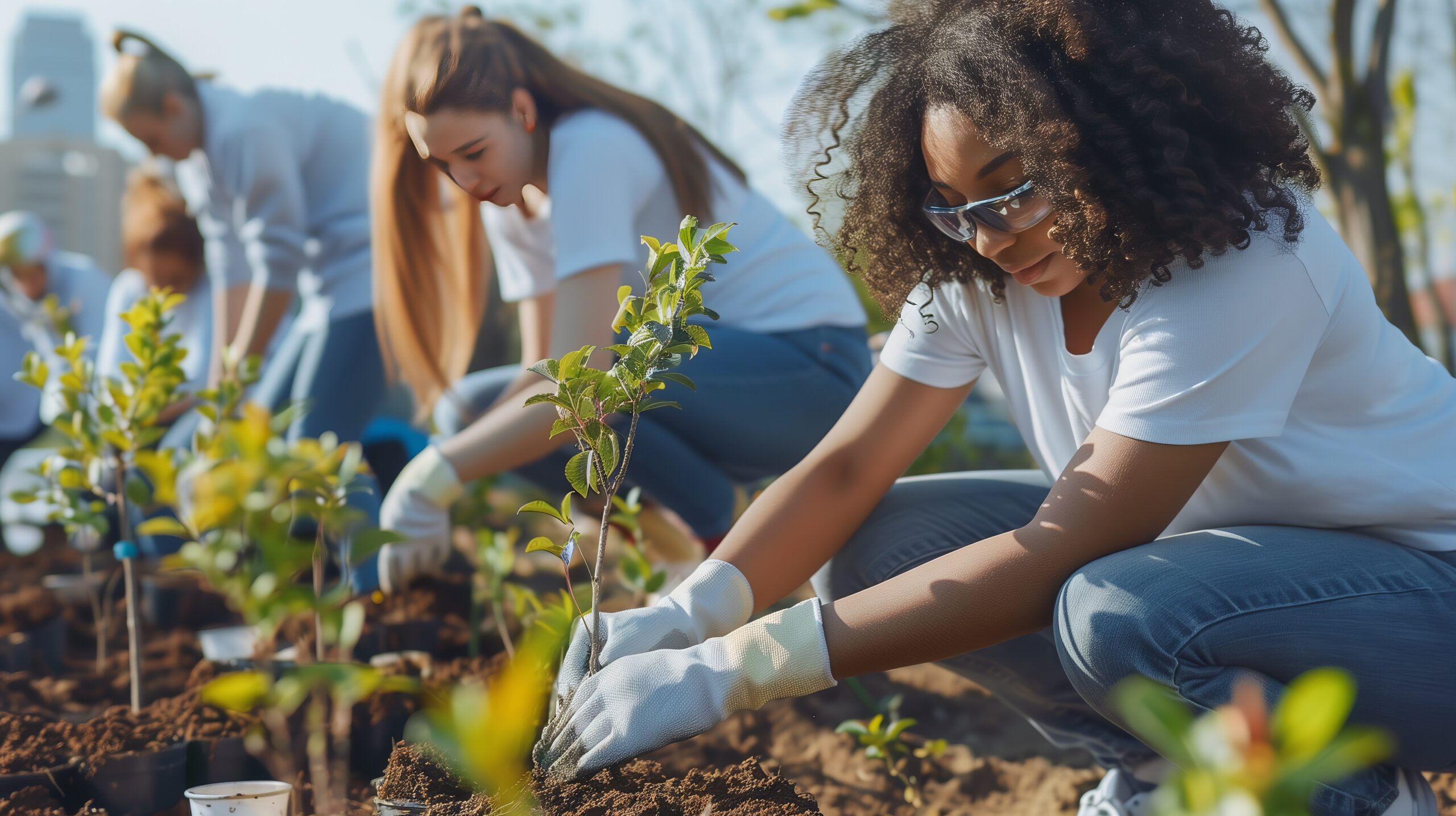Gardening has always been a source of joy and relaxation for me. There’s something magical about planting seeds and watching them grow, knowing that the care you provide helps them flourish. But over the years, I’ve come to realize that gardening is about so much more than plants—it’s about people, connection, and community.
In a world where many of us are glued to our phones or rushing from one obligation to the next, gardening offers a refreshing opportunity to slow down and connect with others. Whether it’s through a neighborhood garden, a local gardening club, or even a small shared space with friends, gardening has the power to strengthen community bonds in meaningful ways.
Creating Shared Spaces
One of the most impactful ways gardening can bring people together is through the creation of shared spaces. Community gardens, for instance, are wonderful hubs for collaboration and connection. These gardens provide a place where people of all ages, backgrounds, and skill levels can work side by side, learning from each other and sharing in the joys of growing food and flowers.
I’ll never forget the first time I joined a community garden project here in Urbandale. At first, I wasn’t sure what to expect—would I know enough about gardening? Would I fit in? But as I spent hours weeding, planting, and harvesting with my neighbors, I realized that the garden wasn’t just about plants; it was about fostering relationships. We swapped gardening tips, recipes, and even life advice, and by the end of the season, I had gained not just a bountiful harvest but also a deeper connection to my community.
Bridging Generational Gaps
Gardening is a universal activity that transcends age, making it a great way to bridge generational gaps. Children can learn from older adults about traditional gardening methods, while seniors can gain energy and enthusiasm from the younger generation.
Last summer, I helped organize a gardening day at a local retirement home, where kids from a nearby elementary school came to plant flowers with the residents. Watching the smiles on everyone’s faces as they worked together was heartwarming. The kids loved hearing stories about how gardening used to be done “back in the day,” and the seniors enjoyed the youthful energy and laughter the children brought to the project. It was a beautiful reminder that gardening isn’t just about cultivating plants—it’s about cultivating relationships.
Encouraging Sustainability and Responsibility
Gardening also teaches important lessons about sustainability and responsibility, which can unite a community around shared values. Working together to create a garden fosters a sense of collective ownership and pride, as everyone pitches in to nurture the space.
For example, one of our community gardens focused on growing fresh vegetables for a local food pantry. Every Saturday, volunteers of all ages came together to tend the garden and harvest produce. It was incredible to see how people rallied around the shared goal of providing healthy food for those in need. Not only did the project strengthen our community bonds, but it also sparked important conversations about food security and sustainable living.
Hosting Events and Workshops
Gardens are natural gathering places that can serve as venues for events and workshops, further strengthening community ties. From gardening classes to potluck dinners, these activities provide opportunities for neighbors to come together and engage in meaningful ways.
A few years ago, I attended a “Garden to Table” workshop hosted at a local community garden. Participants learned how to turn fresh produce into delicious meals, and afterward, we all sat down to enjoy the food together. It was such a simple yet powerful way to connect with others while celebrating the fruits of our labor—literally!
If you’re looking to bring people together in your community, consider organizing a garden event. It doesn’t have to be elaborate; even a casual gathering to share gardening tips or swap seeds can spark new friendships and collaborations.
Fostering Mental and Emotional Well-being
Gardening is known to have numerous mental and emotional health benefits, and sharing these experiences with others can amplify those positive effects. Spending time outdoors, working with your hands, and nurturing plants can reduce stress, improve mood, and boost overall well-being.
When people come together to garden, they create a supportive environment where everyone can share in these benefits. I’ve seen neighbors come to the garden feeling overwhelmed or lonely and leave with a sense of accomplishment and connection. Gardening becomes a form of therapy, not just for individuals but for the community as a whole.
Tips for Getting Started
If you’re inspired to use gardening to strengthen community bonds, here are a few tips to help you get started:
- Start small: You don’t need a large plot of land to make an impact. A few raised beds or even container gardens can work wonders.
- Involve everyone: Encourage participation from people of all ages, abilities, and backgrounds.
- Set goals: Whether it’s growing food for a food pantry or creating a pollinator-friendly space, having a shared purpose helps unite the group.
- Celebrate success: Host events to celebrate milestones, such as the first harvest or the completion of a new garden feature.
- Keep it fun: Remember, the goal is to bring people together, so focus on enjoyment and connection as much as the gardening itself.
Closing Thoughts
Gardening isn’t just about planting seeds in the soil—it’s about planting seeds of connection, understanding, and community spirit. When we work together to create something beautiful and sustainable, we strengthen the bonds that hold us together.
Whether you’re starting a small garden with a few friends or joining a larger community project, I encourage you to embrace the power of gardening to bring people closer. The rewards go far beyond the plants you grow; they include new friendships, shared experiences, and a deeper sense of belonging.
So grab your gloves, pick up a trowel, and start planting—not just for yourself, but for your community. Together, we can grow something truly special.
